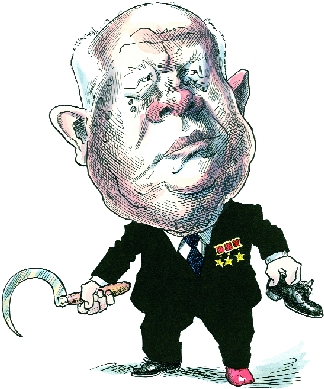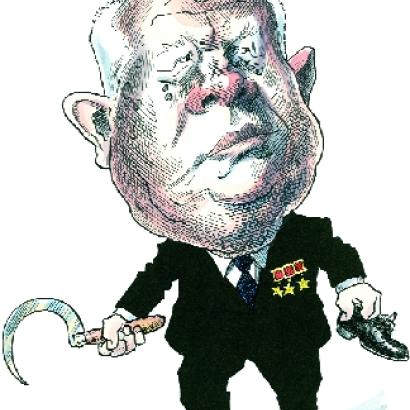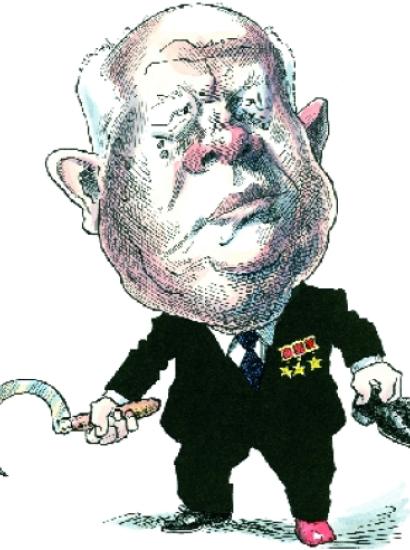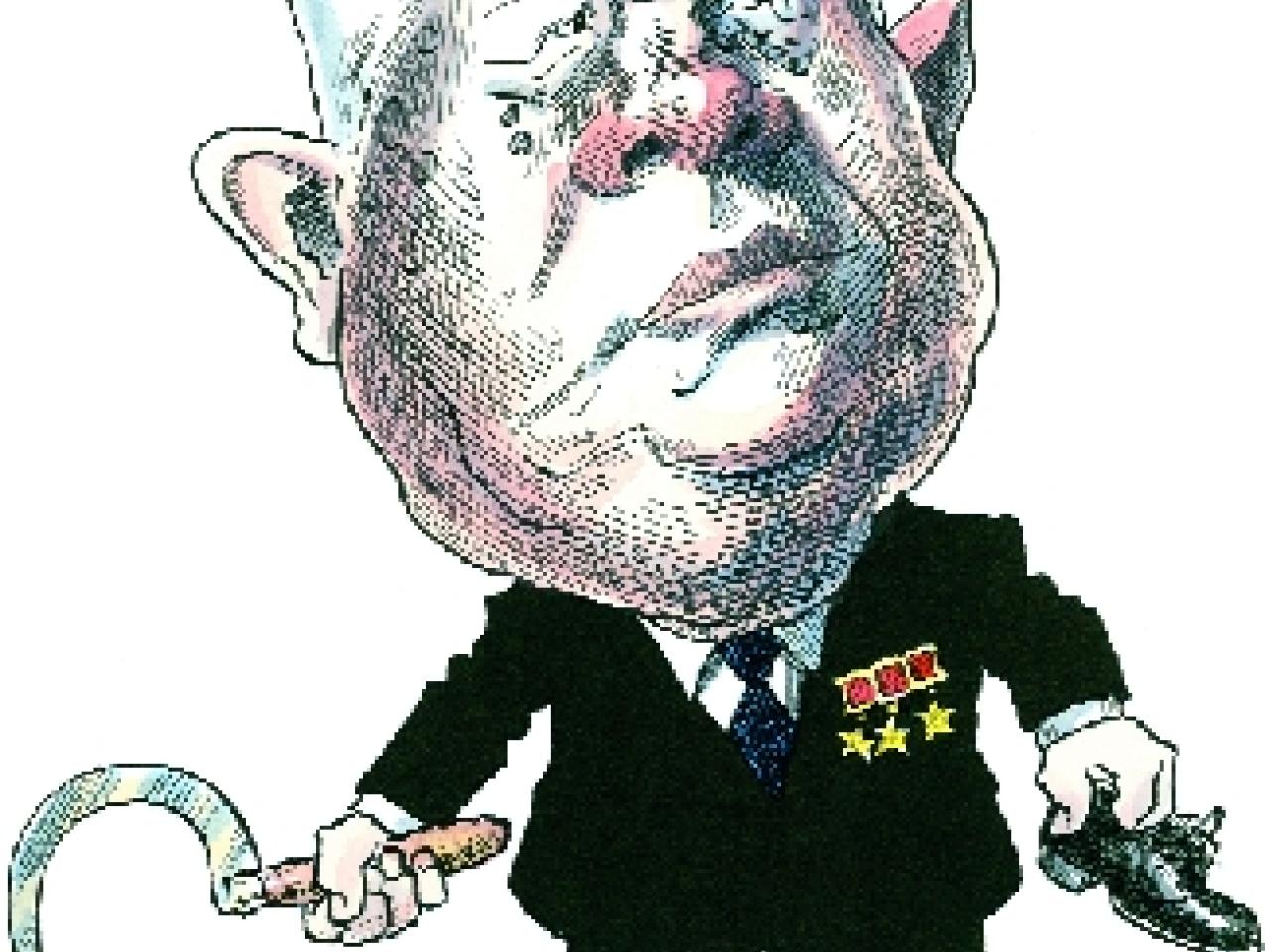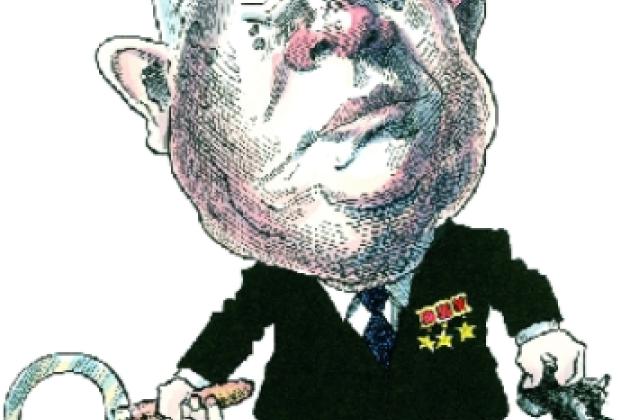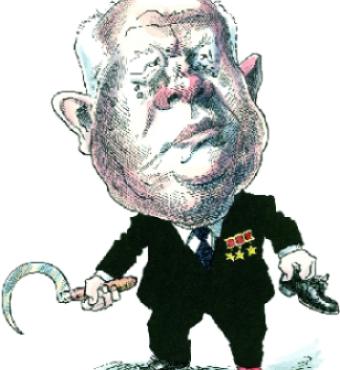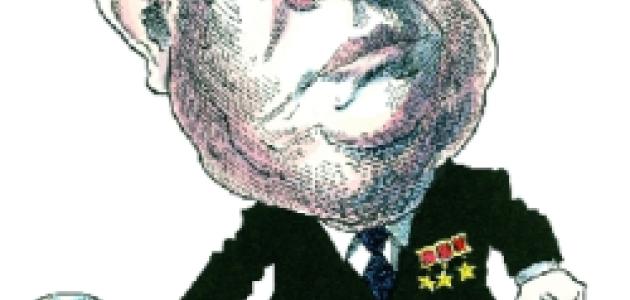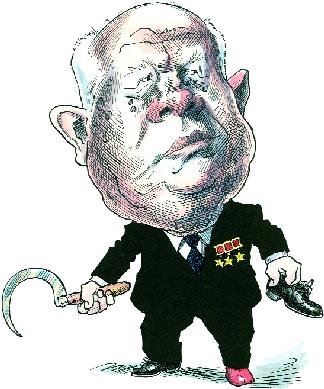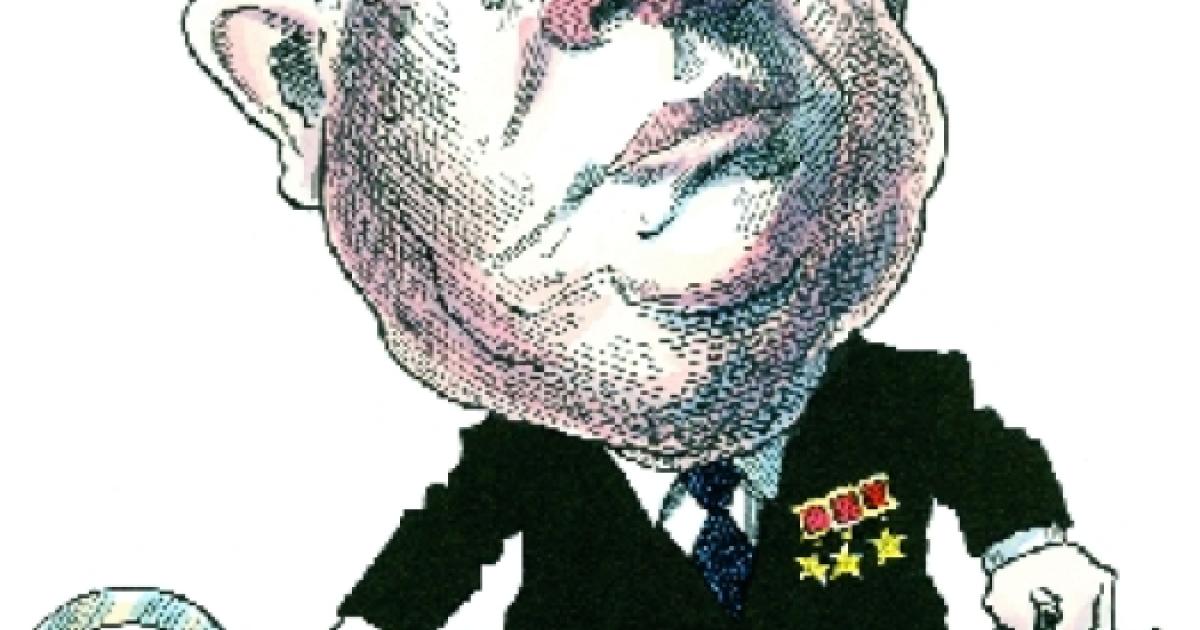When Nikita Khrushchev took the podium on the final day of the 20th Congress of the Communist Party of the Soviet Union, the speech he gave was so surprising and unexpected that some members of the audience actually fainted.

It was February 25, 1956, three years after the death of Josef Stalin and Khrushchev’s accession as first secretary of the party. Although the speech was made in closed session and has been known forever after as the “secret speech,” it did not remain secret for long. The text had been given to local Soviet organizations to be read aloud and to East European Communist Parties. A Polish version soon reached the West, and although its authenticity was denied for a long time by Moscow, it soon became obvious it was genuine.
Why was the speech so shocking? Because it came at the end of decades of totalitarian terror during which millions of people died, in a country where the misuse of power had gone virtually unquestioned and unchecked (and where anyone who dared question the state’s authority was courting arrest). Yet on that February day 50 years ago, Khrushchev cut through years and years of unwavering propaganda to reveal not all, but many, of the crimes of Stalin—his predecessor and mentor—to the world.
Officially, the speech was an attack on the “cult of personality” that had grown up around Stalin. This may sound like little more than a critique of a certain vanity and self-advertisement on the part of the longtime vozhd, or great leader, and that was certainly part of it. “It is impermissible and foreign to the spirit of Marxism-Leninism to elevate one person,” Khrushchev said, “to transform him into a superman possessing supernatural characteristics akin to those of a god."
But the full text went a good deal further, citing “grave perversions of party principles.” Stalin (although Khrushchev defended him against Trotskyites and other “deviationists”) came out badly. He had, according to Khrushchev, made fearful mistakes in World War II; he had ruined the country’s agriculture; V. I. Lenin, the revolutionary Bolshevik leader who governed the country after the revolution, had condemned him; he had wrongly broken with Josip Broz Tito, the Yugoslav leader.
| Although the speech was made in closed session and has been known forever after as the “secret speech,” it did not remain secret for long. |
Even more shocking than these criticisms were the “glaring violations of revolutionary legality” Khrushchev referred to, particularly in Stalin’s treatment of those of his followers he had purged and executed. Khrushchev stressed Stalin’s insistence on “confessions,” and on torture as the way to obtain them. Noting that “70 percent of the Central Committee members and candidates elected at the 17th Congress were branded as enemies of the party and of the people,” Khrushchev gave names of prominent victims and their torturers. Stalin, he said, justified the torture; citing the notoriously faked “Doctors’ Plot” of 1953 (the only nonparty victims to appear in the speech), Khrushchev quoted Stalin’s interrogation instructions: “Beat, beat and beat again.”
Khrushchev strongly hinted that the murder of party leader Sergei Kirov in 1934 had been ordered by Stalin. And he condemned Stalin’s mass deportations of Chechens and others in the 1940s. (But he gave no attention to those condemned in the “show trials” of the 1930s, many of whom had to wait 30 or 40 years for redress—or to the Katyn massacre of more than 4,000 Polish army officers during World War II.)
x

It is difficult all these years later to explain the extraordinary effect of this speech. The Soviet Union at the height of the Cold War was secretive and mendacious. Despite the purges and plots, despite Stalin’s brutality and paranoia, the credulous throughout the world—including many in the United States—refused to believe the worst.
This was not the first indication of Stalin’s crimes, of course. A great deal of firsthand testimony on the lethal Stalinist record had already been published in the West, but it had not been accepted everywhere as true; a large amount of misinformation had filled the shelves, often by “intellectuals” of high standing—enough to lead to a verdict of “not proved” from many others. To the general public, then, the speech was a revelation. In an unprecedented act of journalism, Britain’s leading liberal Sunday newspaper, the Observer, devoted an entire issue to it.
Khrushchev does not seem to have quite realized the degree of damage he might do to the Soviet Union’s image as a humanist, progressive country by speaking of official tortures and murders. Throughout the West there was an astonishing revulsion. Those who had been totally deceived had their minds cleared (although many eventually returned to the fold, anti-Western feeling outweighing all else for those whom George Orwell described as “renegade liberals”).
The speech’s effect on the Communist Parties of Eastern Europe was radical. In Poland, it resulted in the overthrow of the servile pro-Moscow leadership later that year and a confrontation that included military threats and the direct intervention of Khrushchev and his colleagues. In Hungary came the collapse of the Stalinist order and then the revolution and the bloody Soviet intervention in October. All through the Soviet bloc, the Stalinist mentality was severely disrupted—in preparation, it might be said, for its final collapse later.
Why did Khrushchev give the speech? For a time it was thought that he had spoken without the agreement of the rest of the leadership. We now know that he had, in fact, managed to get some sort of approval. It is also clear now that the speech served, in part, as a continuation of the same internecine struggle within the Politburo that had marked the Stalin epoch and that persisted long afterward.
| To the general public, the speech was a revelation. In an unprecedented act of journalism, Britain’s leading liberal Sunday newspaper, the Observer, devoted an entire issue to it. |
Stalin had nurtured his heirs very carefully to prevent any solidarity among them that might lead to mutiny, and this highly quarrelsome group continued to distrust one another even after he died. The speech was, in this context, an attack by Khrushchev on his rivals. It served his purposes to denounce some of the Soviet past, to blame the safely dead Stalin and to implicate some of his surviving heirs. Like him, they had been dragged through years of terror and stupefaction. The following years saw Khrushchev defeating one coup d’état but later being ousted by another.
In Russia itself, the speech prompted the beginnings of a thaw but one that did not last. And among a portion of the population there remained, and remains even now, a favorable attitude toward Stalin, which is sometimes seen as the result of centuries of submission to tyranny. For others, the “secret speech” massively undermined the Stalin regime.
But the machine he had built, or inherited from Lenin, survived for a third of a century. And, by an odd paradox, much of the parasitical apparat remains to this day, long after its ideological justifications have gone, like a cartoon character—Wile E. Coyote or Mr. Magoo—walking on into thin air after his plank has disappeared.
| Khrushchev does not seem to have quite realized the degree of damage he >might do to the Soviet Union’s image as a humanist, progressive country >by speaking of official tortures and murders. |
A hundred years ago, Anton Chekhov wrote of Russia’s “heavy, chilling history, savagery, bureaucracy, poverty, and ignorance. . . . Russian life weighs upon a Russian like a thousand-ton rock.” And over most of the twentieth century, things got worse still, adding yet further burdens to the Russian psyche. Recovery has set in, sporadically, in the 50 years that have passed since Khrushchev delivered his “secret speech.” But progress was slow and even now has far to go. Let us hope that by 2056 we might see a marked upturn.
The content of this article is only available in the print edition.






